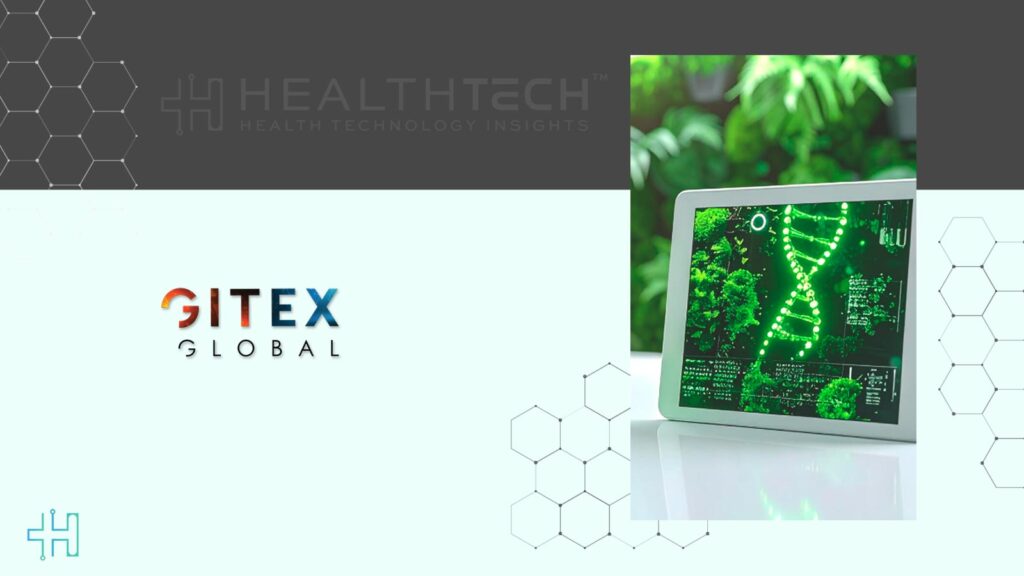The combination of artificial intelligence, quantum computing, and advances in biosciences is reshaping the global healthcare industry, which is expected to surpass $1.7 trillion in AI-driven biotech spending by 2025, according to Nasdaq. At GITEX GLOBAL 2025, held from October 13 to 17, this transformation was on full display, demonstrating how medical breakthroughs that once took years of experimentation can now be modeled, simulated, and validated in just days with intelligent computing. The 45th edition of the world’s largest technology and AI exhibition featured 6,800 exhibitors, 2,000 startups, and delegations from 180 countries, highlighting digital health and biotechnology as some of the most exciting developments of the event. Innovations ranged from gene editing and neurotechnology to quantum medicine, showcasing how technology is fundamentally changing how we understand and treat disease.
Health Technology Insights: Altera Digital Health Launches CareInTelligence, a Data Platform for Payers
Trevor Martin, CEO and Co-Founder of Mammoth Biosciences, presented his vision for “rewriting the code of life” on the GITEX main stage, explaining how AI combined with CRISPR gene-editing technologies is accelerating therapies for genetic diseases. “We have programs targeting the liver, muscles, and brain where we are working to cure rare genetic conditions by altering DNA. This approach has the potential to save millions of lives beyond rare diseases,” he said. Neurotechnology leader Matt Angle, CEO of Paradromics, discussed the progress of the world’s first high-data brain-computer interface, noting that “our clinical trials are enabling people who cannot speak to communicate directly through neural signals translated into speech in real time.” Ashley Zehnder, CEO of Fauna Bio, highlighted how studying mammal genomes is uncovering untapped drug discovery potential. She explained that “species like the spiny mouse, capable of regenerating multiple tissues, provide insights that could transform medicine.”
Health Technology Insights: Ferring Highlights New Real-World Research with ADSTILADRIN in Clinical Practice
The high cost of pharmaceutical R&D has long limited innovation, with Deloitte estimating an average of $2.23 billion per asset. At GITEX GLOBAL, Jack Hidary, CEO of SandboxAQ, introduced quantum computing solutions capable of compressing research timelines from decades to months. “Our Large Quantitative Model operates on equations, molecules, and atoms rather than words, creating a virtual simulator that allows millions of experiments to be run rapidly and accurately,” he said. The discussion extended to healthcare system reform in a session titled “The $10 Trillion Transition: From Sick Care to Health Intelligence,” where Dimitris Moulavasilis, Group CEO of M42, and Dr. Georges-Pascal Haber, CEO of Cleveland Clinic, called for a shift from reactive, treatment-focused systems to preventive and resilient healthcare models. Dimitris Moulavasilis explained that “to create sustainable systems, we need to invest in prevention and redesign care delivery to keep patients healthier overall.” Meanwhile, Ramin Hasani, CEO of Liquid AI, revealed liquid neural networks inspired by microscopic worm brains that adapt and learn in real time, mimicking living intelligence.
GITEX GLOBAL also showcased headline-making innovations that promise real-world impact across healthcare and biosciences. XPANCEO revealed six smart contact lens prototypes integrating augmented reality and biosensing to track glucose and provide live data in the user’s vision. SharedPro Technologies introduced an AI-powered tool for more precise autism screening and tracking, addressing gaps in diagnosis and monitoring. South Korean startup HurayPositive presented a software-as-a-service platform using AI to deliver precision medicine to one million patients with chronic conditions. Arlan Biotech debuted a generative AI discovery platform to streamline antibody development, potentially shortening pharmaceutical R&D cycles and speeding progress in immunotherapy.
Sonic Group unveiled the Sonic Pill®, a wearable device using sound frequencies and neuroscience-based algorithms to enhance sleep, focus, recovery, and cognitive performance. The device won the Best Invention FIRI Award in Korea and a Silver Medal for Sound Therapy Innovation at ARCA Croatia, redefining how sound can be applied to improve human health. Collectively, the advancements presented at GITEX GLOBAL 2025 illustrated how artificial intelligence, quantum technology, and bioscience breakthroughs are converging to accelerate healthcare innovation, reduce research timelines, and create scalable solutions that could transform lives worldwide.
Health Technology Insights: Locus Biosciences Partners on Precision Eye Infection Therapy
To participate in our interviews, please write to our HealthTech Media Room at info@intentamplify.com







